Introduction
Searching for the right video content could be a real challenge because millions of videos are available online. One thing is real, every day there are new videos posted, trends change, and the audience’s interests become more diversified. Overflow of options usually leads to confusion. Effective video search engines play a vital role in filtering through the noise, offering users a chance to get to the information they are searching for quickly.
In this article, we’ll explore eight awesome video search engines that will revolutionize the way people look for content online. Whether you are, a student searching for educational videos, a marketer looking for trending content, or a filmmaker looking for creative inspiration, these platforms will open the creative doors of the video universe.
Table of Contents
Why Do You Need a Good Video Search Engine?
- Volume: With billions of videos uploaded to various platforms, sifting through the sheer volume of content is a monumental task. A good video search engine helps cut through the clutter.
- Trends: Staying on top of trends is crucial for content creators, marketers, and anyone who wants to remain relevant. Video search engines highlight the latest trends, ensuring you don’t miss out.
- Optimization: Finding optimized, high-quality content quickly is essential. Whether it’s SEO-friendly titles or curated playlists, good search engines deliver relevant results fast.
- Different Audiences: Different platforms cater to different audiences. For example:
- YouTube: General audience with a broad range of topics.
- Vimeo: Indie filmmakers and creative professionals.
- TikTok: Gen Z and millennials looking for quick entertainment.
8 Powerful Video Search Engines
1. YouTube


- Headquarters: San Bruno, California, USA
- Founded: 2005
- Founders: Steve Chen, Chad Hurley, and Jawed Karim
Overview: YouTube is the world’s second most-visited site, just behind Google, making Alphabet Inc. a dominant force in search as it owns both platforms.
A whopping 81% of U.S. adults use YouTube, making it a significant hub for marketers and brands.
Every minute, over 500 hours of video are uploaded to YouTube, and viewers watch over 1 billion hours of video daily. Although YouTube only searches its own platform, the vast amount of content means you’re likely to find what you need.
Since Google owns YouTube, its search features are excellent. If you’re interested in saving videos to watch offline, learn how to download YouTube videos for free.
Features:
- Search Filters: Narrow results by upload date, type, duration, and features (e.g., subtitles).
- Keyword Suggestions: Autocomplete provides keyword suggestions as you type.
- Video Length: Filter by video length (short or long).
- Upload Date: Sort by upload date (last hour, today, this week, etc.).
Best For: General video discovery, finding recent and trending content.
2. Google


- Headquarters: Mountain View, California, USA
- Founded: 1998
- Founders: Larry Page and Sergey Brin
Overview: Google Video Search is a service that combines results from different sites, including YouTube and Vimeo as well as news sites. This search engine gives users the ability to easily check out video content in any corner of the web.
Google is considered the largest search engine at present with 91% of the search market share. With this, the giant is processing 40,000 search inquiries every second on average (which gives about 3.5 billion per day) and is obviously the most authoritative source in SEO practice.
For reverse image and video searches, use Google Lens. Upload a screenshot of a video via the camera icon in the search bar, and Google will show related photos and videos.
With its massive index and user-friendly tools, Google is the go-to choice for video searches.
Features:
- Aggregated Results: Videos from multiple platforms like YouTube, Vimeo, and Dailymotion.
- Filters: Filter results by duration, time, and source.
- Rich Snippets: Display detailed video information like length, source, and upload date.
Best For: Finding videos across various sources, from Vimeo to news sites.
3. Vimeo
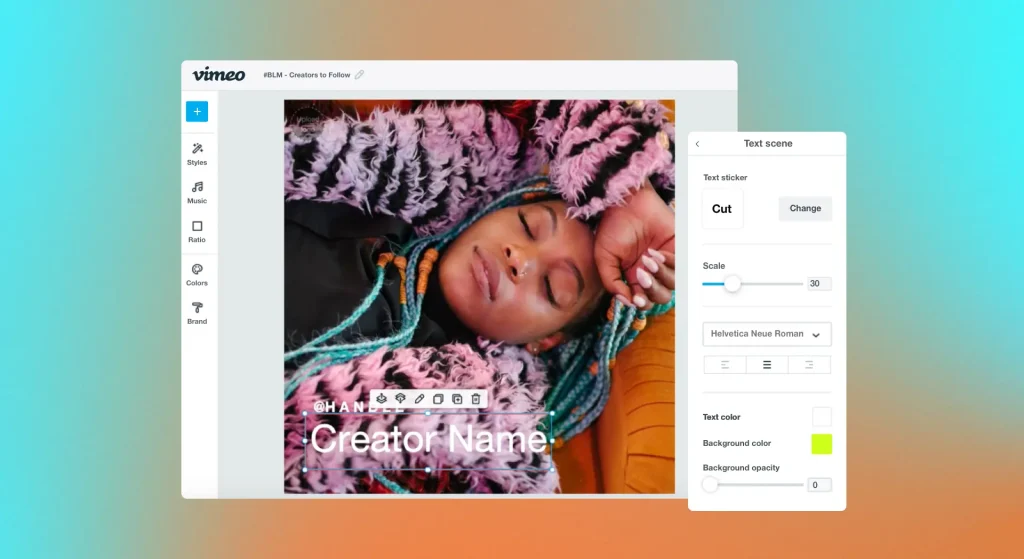

- Headquarters: New York City, USA
- Founded: 2004
- Founders: Zach Klein and Jack Lodwick
Overview: After YouTube and Dailymotion, Vimeo is the most popular hosting platform for videos.
Despite this, Vimeo has less content than YouTube; however, its quality of video and audio is superior. Often one will come across the same video on both platforms, only faster at Vimeo due to its higher bitrates than at YouTube. With a reputation for having superior content in terms of both creativity and standard, Vimeo attracts filmmakers and professionals, providing a curated experience where creators showcase their best work.
Features:
- Categories: Search by categories like Animation, Documentary, and Music.
- Staff Picks: Curated selection of high-quality, trending videos.
- Creator Tools: Advanced tools for video hosting, editing, and sharing.
Best For: filmmakers, creative video discovery.
4. Dailymotion
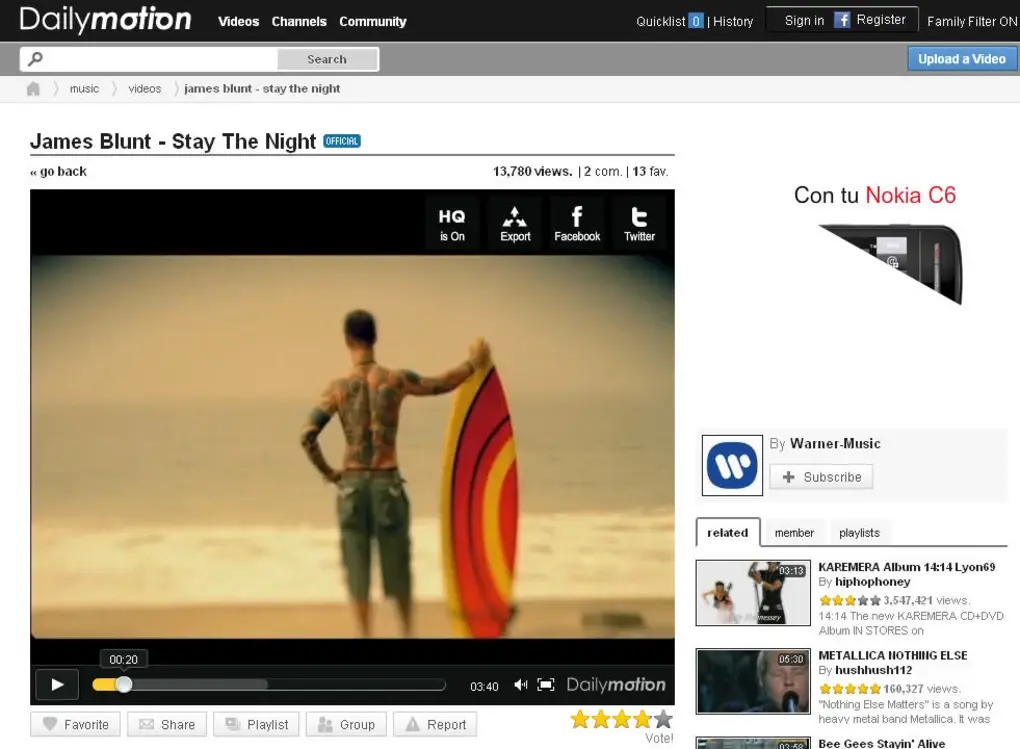

- Headquarters: Paris, France
- Founded: 2005
- Founders: Benjamin Bejbaum and Olivier Poitrey
Overview: Dailymotion is a video-sharing website where people can upload their own videos. With more than 300 million users it’s a good place to find videos created by other users.
Dailymotion’s search interface features a clean, uncluttered layout with minimal ads. Filters on the search results page make it easy to sort videos by duration, upload date, and popularity.
As a global video platform, Dailymotion offers diverse content ranging from regional entertainment to global news. While similar to YouTube, it serves as an excellent alternative for international content.
Features:
- Genres: Broad range of genres, including Sports, News, and Music.
- Trending Section: Discover up-and-coming videos from around the world.
- Playlists: Curated playlists for various interests.
Best For: Finding international content, an alternative to YouTube.
5. Metacafe


- Headquarters: San Francisco, California, USA
- Founded: 2003
- Founders: Arik Czerniak and Eyal Hertzog
Overview: Metacafe specializes in short-form videos, focusing on entertainment and gaming. Founded in 2003, it was one of the pioneers of user-generated video content, allowing users to share their creations long before platforms like YouTube became popular.
Features:
- Short-Form Videos: Videos typically under 10 minutes.
- Curated Playlists: Handpicked playlists for different genres.
- User Ratings: Find popular videos based on user ratings.
Best For: Quick, entertaining video discovery.
6. Veoh
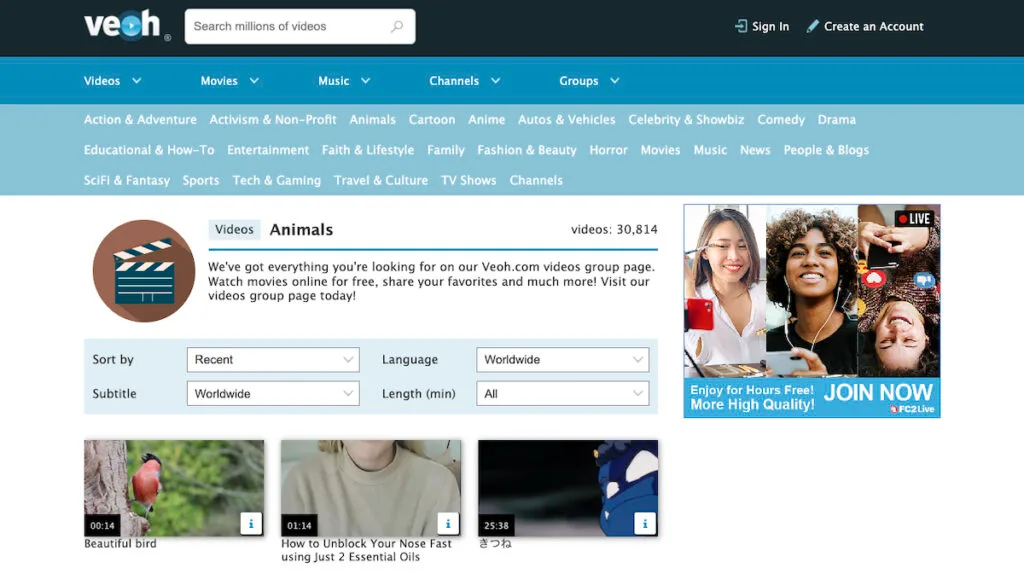

- Headquarters: San Diego, California, USA
- Founded: 2005
- Founder: Dmitry Shapiro
Overview: Veoh is a video platform focused on longer-form content, including full-length movies and TV shows. It also hosts a community of creators and viewers.
Features:
- Full-Length Content: Movies, TV shows, and series.
- Community-Driven: Active user community sharing recommendations.
- Custom Channels: Create and customize your own video channels.
Best For: Discovering longer-form entertainment content.
7. BitChute
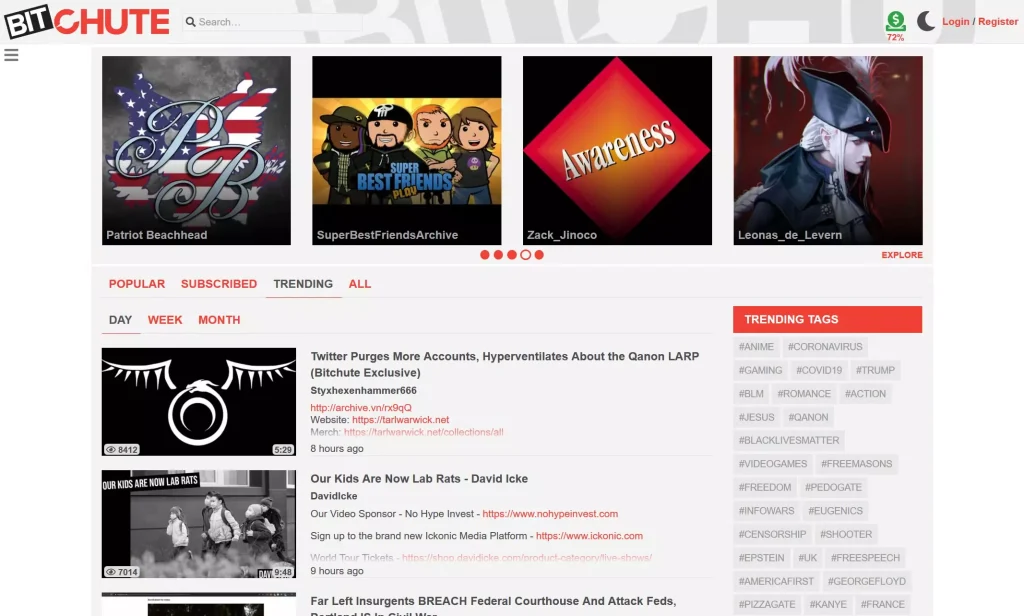

- Headquarters: Newbury, England
- Founded: 2017
- Founder: Ray Vahey
Overview: BitChute is a video platform that is not centralized aiming at freedom of speech and progress. The platform is growing quickly and is now focusing on content creators who would like to leave famous video sites. BitChute advocates peer-to-peer sharing with an emphasis on peer-to-peer generation thus enabling free speech and the absence of censorship for makers of videos. Therefore, it has become an enclave of specialized content which is too small for general sites.
Features:
- Decentralized Platform: Content hosted across a peer-to-peer network.
- Free Speech Focus: Less restrictive content guidelines.
- Niche Content: Videos that may not be available on other platforms.
Best For: Alternative video content not found on mainstream platforms.
8. TikTok
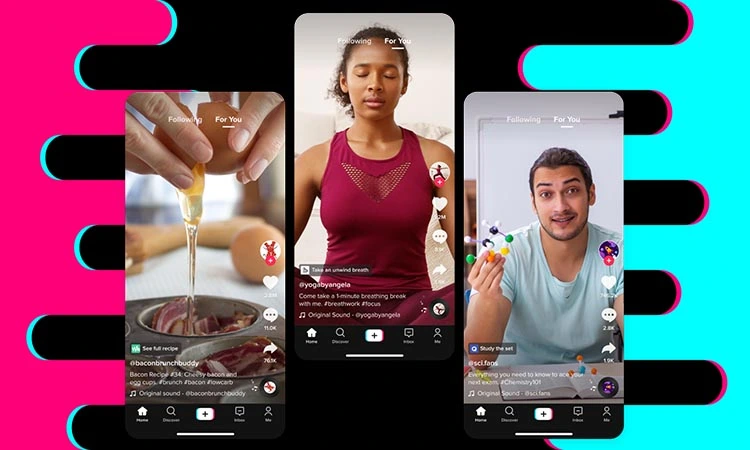

- Headquarters: Beijing, China
- Launched: 2016
- Parent Company: ByteDance
- Founders: Zhang Yiming
Overview: TikTok is a social media platform known for its trending short videos. With its unique algorithms, TikTok curates highly personalized content for users, making it addictive and engaging.
Features:
- Trending Short Videos: Quick, 15-second to 1-minute videos.
- Unique Algorithms: AI-driven recommendations based on user interaction.
- Hashtags: Explore trends and challenges through hashtags.
Best For: Viral trends, quick entertainment.
How to Choose the Right Video Search Engine for You
- User Intent: What are your goals? If you’re looking for broad entertainment, YouTube or Dailymotion could be your go-to platforms. If indie and creative content are more your thing, try Vimeo or Veoh.
- Content-Type: Short vs. long-form content. TikTok and Metacafe excel at short-form, while Veoh and YouTube provide full-length entertainment.
- User Experience: Navigating the platform smoothly is essential. Google Video Search offers a unified interface, while BitChute has a minimalist approach.
- Community Interaction: Some platforms, like Veoh and Vimeo, have strong user communities. If community interaction matters, consider joining their circles.
Tips to Improve Your Video Search Results
- Hashtags: Hashtags are particularly useful on TikTok and Instagram for finding trending content. Experiment with relevant tags like #DIY, #tutorial, or #viraltrends.
- Sorting and Filtering: Learn to use filters effectively. On YouTube, try filtering by upload date, length, and view count. On Google, filter by platform and duration.
- Subscriptions and Playlists: Subscribing to your favorite creators and curating playlists can keep you updated with the latest uploads and help you organize your favorite content.
Conclusion
Navigating the huge world of online videos can be tough. But with the right video search engine, finding quality, trending content is much easier. Whether it’s YouTube’s vast library, TikTok’s viral videos, or BitChute’s niche content, there’s something for everyone.
Each of these eight video search engines has unique strengths. Try different platforms, use search tips, and join online communities to make finding videos easier.
FAQ
Q. What is the best video search engine for general video discovery?
A. YouTube remains the best for general video discovery due to its vast library and comprehensive search filters.
Q. How can I find trending videos on multiple platforms?
A. Google Video Search aggregates trending videos from YouTube, Vimeo, and other platforms, providing a unified view.
Q. How do hashtags help in finding trending video content?
A. Hashtags categorize content, making it easier to find trending challenges, topics, or genres on TikTok and Instagram.




